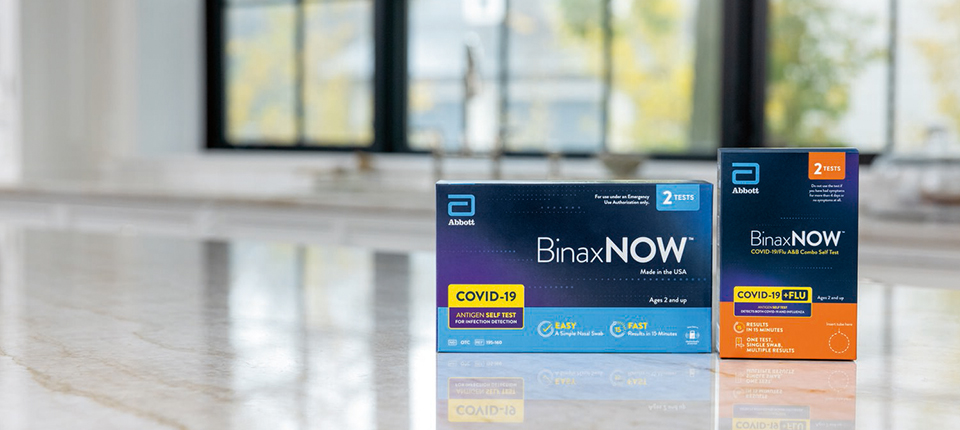Now that you have the BinaxNOW Self Test under control, here are answers to some of the questions you might have:
1. Why use COVID Self Tests?
Our BinaxNOW Self Tests can provide the confidence needed to continue engaging in your communities as other COVID-19 safety measures begin to dissipate. Testing before and after events, school, work or social engagements gives you and your loved ones confidence, especially if you have loved ones who are at a higher risk.
2. How do I test myself or someone else?
Using the BinaxNOW Self Test is simple, even if you have never tested yourself before. You simply will perform a lower nostril nasal swab (not the deeper nasopharyngeal swab) and everything you need (swab, test card and reagent solution) is included in the box. Each test kit comes with an illustrated quick reference guide to walk you through the process step by step.
3. Who should use this test?
The test is indicated for all people aged 15 years or older and for children as young as 2 years old when samples are collected by an adult. The test can be used for people with and without symptoms.
4. Should people who were vaccinated use this test?
Testing will remain an essential part of our short- and long-term COVID-19 recovery strategy. The BinaxNOW Self Test will be a key tool alongside vaccination as we get back to life. We don't yet know how long vaccines confer immunity and how variants will evolve.
5. How many tests come in a package?
There are two tests (as well as two swabs and reagents) in each box.
6. How long should people wait between taking BinaxNOW Self Tests?
The amount of time between tests depends on a few factors. Here’ s how you can understand how long you should wait between tests:
- If you test positive, this should be considered a positive
- If you test negative within the first seven days of experiencing COVID-like symptoms, test again with at least 48 hours in between tests
- If you test negative with no symptoms, test again two more times with at least 48 hours between each test
7. Can the BinaxNOW Self Test be thrown into the garbage after use?
You can recycle the box, but should dispose of the test card, nasal swab and test solution in common household waste, in line with the test's instructions for use.
8. How do I know if I have a positive or negative test?
To check for a positive result, look at the result window for two pink or purple lines. Even a faint line next to the word "sample" on the test card is a positive result. A negative result will have only one pink or purple line on the top half of the results window where it says "control."
9. What if my test result is invalid?
If your results window has any of the following, the test result may be invalid:
- No lines appear by control or sample
- The control line is blue and not pink/purple
- There is a pink/purple line by sample, but no line by control
- The control line is blue, but the sample is pink/purple
If you see an invalid result, contact our technical support on this number: +1 833-637-1594.
10. Can the tests still work after sitting in cold or hot temperatures?
Yes. A storage temperature range is very common in OTC health products. For BinaxNOW, it’s between 35.6 and 86° F and the test should be kept within this range. But if the test is stored outside the temperature range for a relatively short period of time – for a couple of hours up to a day or two – it will be fine to use, and it’s important is that test and its components be used at room temperature.
11. How do I know what day my BinaxNOW Self Test expires?
Abbott recently received an extension from the U.S. FDA for BinaxNOW Self Tests from 15-month expiration dates to 22-months
Here’s how you can confirm what your new expiration may be:
- Look on the back of your box for both the expiration date (next to the hourglass symbol) and lot number (next to the words LOT).
- Visit the FDA’s website to see if your test kit’s lot number has a new expiration date. The FDA has also included a full list of all at-home COVID-19 tests that have an EUA and whether they have an extended expiration.
12. Are these at-home tests covered by insurance?
BinaxNOW is FSA and HSA eligible, but be sure to contact your health insurance provider to determine reimbursement eligibility.
Anything you're still unsure of?
For more about the BinaxNOW Self Test and to contact our technical support team, click here.
This story was originally published on March 11, 2022 and updated on May 31, 2022, June 10, 2022, Feb. 15, 2023 and March 24, 2023.
